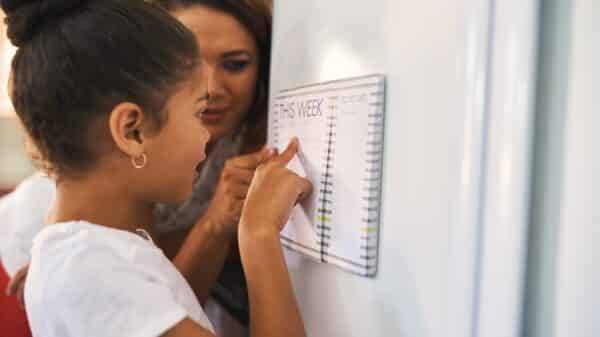One woman has sparked an important discussion among parents and movie lovers about the propriety of taking very young children to films that aren’t made with them in mind. She recently shared her experience on Threads, recounting a time when she attended a 5:00 PM screening of a *Star Wars* film, noting that the movie ended around 7:30 PM—a long stretch for a little one. The father seated behind her had brought along his approximately three-year-old child. Unfortunately, the child struggled to stay engaged, lasting only about half an hour before boredom set in.
In her thoughtful post, she expressed empathy for the father, suggesting that perhaps he was simply trying to share his passion for *Star Wars* with his son. However, she also laid out some key points, advocating for parents to consider whether it’s really fair to both the child and the other moviegoers. “Not only is it not kind to other moviegoers, it’s not fair to the child,” she wrote. “He’s bored, he’s frustrated that he can’t entertain himself and enjoy himself, and he’s probably heard ‘no’ and ‘stop’ a hundred times during the remainder of the film.”
Her insights highlight a real dilemma that many parents face: balancing their own interests with what is age-appropriate for their children. “Understanding what is age-appropriate for your child will help them succeed—I’m not just talking about the content of the movie, but also the length of time you expect a tiny child to sit still and be quiet,” she continued.
This sentiment got a varied response on Threads. Some users felt that the movie time itself was reasonable, with one asserting, “A 5 PM movie time is a pretty acceptable one to bring kids to.” Others shared their own experiences, emphasizing that they waited until their kids were older—typically around four or five—before even attempting a trip to the theater. One user mentioned a local theater with a play space where kids could run around and burn off energy for 30 minutes before the movie, making the outing more enjoyable for everyone.
But there were also voices that agreed with the original poster. “He should have taken the L and left,” one responded. Another mother chimed in, saying, “My kids are 7 and still haven’t been to a theater because I know they can’t sit through a whole movie.” This led the original poster to give her a virtual high-five: “Thank you for knowing their limits! Taking them to a theater before they are ready is just setting them up to fail.”
The underlying theme of this discussion raises a fundamental point about empathy—both for your child and fellow moviegoers. When parents make choices that consider the developmental stages of their children, they not only set their kids up for success but also create a more pleasant experience for everyone involved. It’s about finding the right balance so that both parents and children can enjoy outings without added stress or frustration.
Ultimately, this conversation encourages us to think about our expectations and the unique challenges faced by both parents and children. It serves as a gentle reminder: sometimes, the best way to bond over shared interests is not by forcing it, but by waiting until our kids are truly ready to join in the fun.
Image Source: Yuganov Konstantin / Shutterstock



































